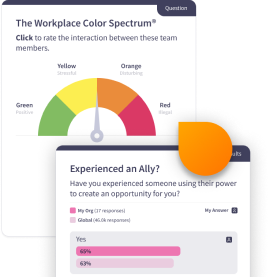
Creating an Accessible Workplace
A Message from Our CEO
Learn more about EmtrainEvery employee plays a role in making the workplace inclusive, respectful, and accessible to everyone. That means being aware of and responsive to the needs of colleagues with physical limitations, hearing and vision impairments, language challenges, or other special needs. Accessibility is a shared responsibility — and understanding how to be considerate and accommodating helps create an environment where everyone can fully participate.
Course Description
This course provides the knowledge and skills needed to ensure equitable treatment for all — including people who are Deaf or Blind, those with special communication needs, and those who rely on service animals. Learners will gain helpful guidance on respectful communication, appropriate interactions with service animals, and ways to support colleagues who may need additional accommodations.
Key Concepts- Describe the benefits and requirements of providing language services and accommodations
- Identify a person's needs and secure associated services
- Understand how to manage support persons and service animals
Course Features
- Access to our Anonymous Ask the Expert tool
- Rich video scenarios based on real-world events
- Built-in employee sentiment surveys
- 50+ Machine Translation Options
- Optional program timer
- Policy acknowledgement tool
- Extensive customization options

Lessons
Equal Access
Interpreter Services
Services for People With Special Communication Needs
Service Animals
Provide Your Feedback
Relevant Courses
Complementary Microlessons
Recommended Resources
From ‘Ask the Expert’
Emtrain’s Ask the Expert feature enables users to ask questions about compliance, bias, harassment, and diversity & inclusion as they come up. It’s all confidential, and answers are sent straight to their inbox. View some of the example questions below and see the Experts answers.


